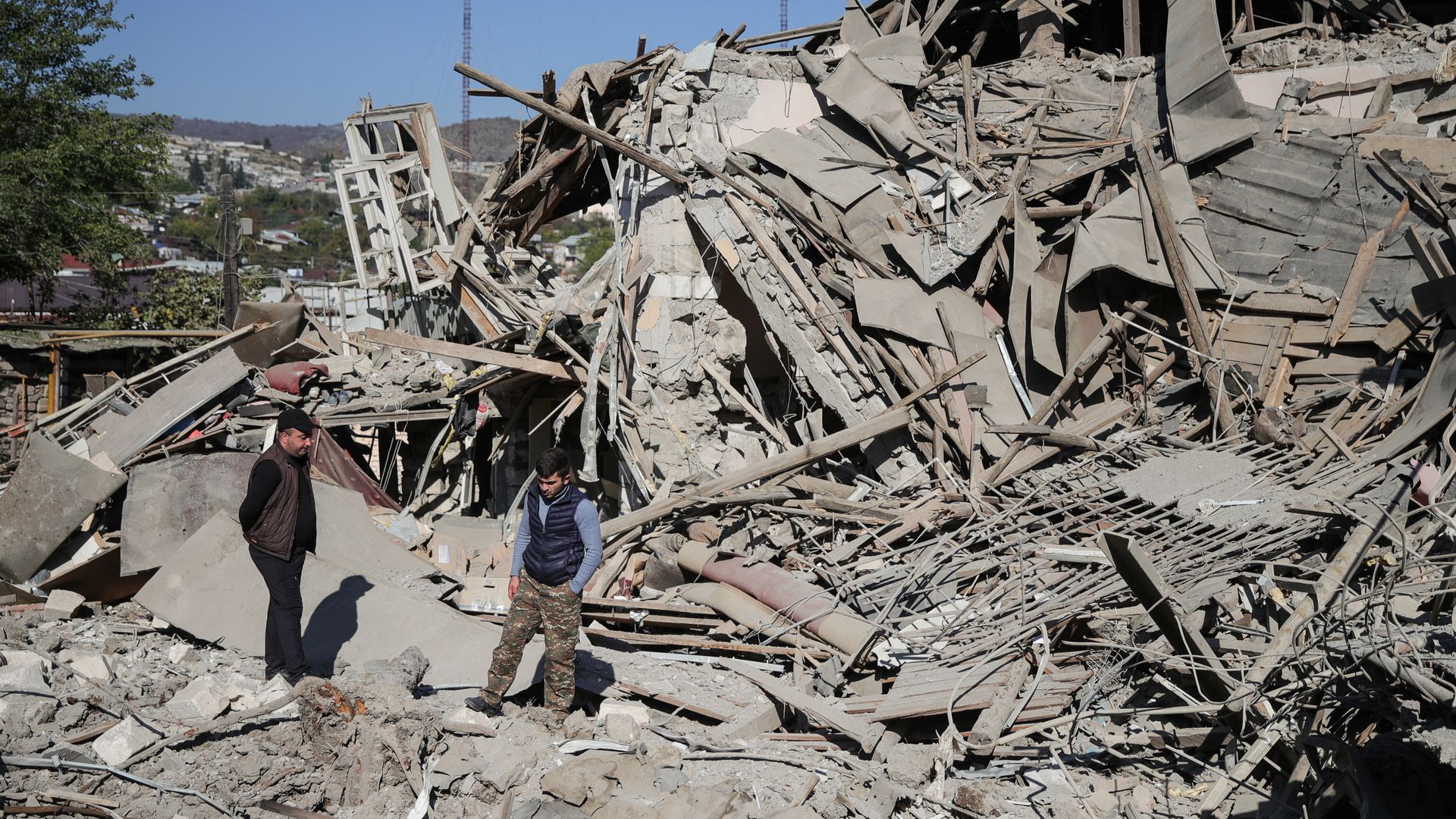Oct 25, 2020 - World
Armenia, Azerbaijan agree to U.S.-brokered humanitarian ceasefire
Add Axios as your preferred source to
see more of our stories on Google.

Local residents examine an area destroyed in a night shelling attack in Nagorno-Karabakh. Photo: Sergei Bobylev\TASS via Getty Images
